Bilbies and bettongs-the desert forms of bandicoots and rat-kangaroos-can bring degraded desert landscape back to life, a new study at the University of New South Wales has found.
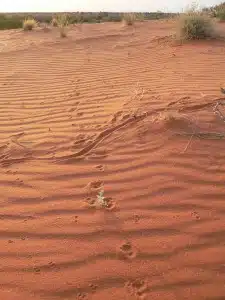
Bilby tracks with seedling at Arid Recovery. Credit: Alex James
The two foraging marsupials create nutrient-rich hotspots that can result in whole areas of renewed greenery, PhD student Alex James and her colleagues have shown. They have been studying the impact of bilby and bettong reintroductions at a reserve called Arid Recovery about 20 kilometres north of Roxby Downs in northern South Australia. Alex announced her work at Fresh Science at Melbourne Museum.
“These animals are phenomenal diggers and create a patchwork of small depressions when they dig for food buried in the soil,” says Alex. “The depressions they make capture scarce resources such as seeds, leaf litter and water, and become a focal point of plant germination after desert rains.”
The aim of the project was not only to examine the effects of these species on the restoration of vegetation, but also to provide insight into the impact they may have had on the environment prior to their disappearance from much of central Australia.
“This work represents the first systematic attempt to document the effect of these soil-foraging species on degraded ecosystems,” says James’ supervisor Dr David Eldridge.
“Bilbies and bettongs were once widespread across arid Australia but have suffered massive range declines,” Alex says. “In our reserve, where they have been reintroduced, we find they have disturbed an average of five tonnes of soil a hectare at any one time. Their diggings contain up to twice the levels of nitrogen and carbon nutrients as the surrounding soil, and more than three times the number of seedlings.”
The native species consistently excavate much more than their invasive counterpart, the European rabbit. “And their diggings contain 45% more seedlings than rabbit disturbance.” The rabbit has a voracious appetite for desert plants and is responsible for much of the degradation seen across the arid zone.
A key finding of the study is that the loss of bilbies and bettongs from much of the arid zone has had substantial effects of ecosystem structure, and that their functional role has not been taken up by the European rabbit.
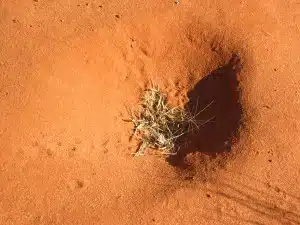
Bilby digging with trapped leaf litter and seed. Credit: Alex James
Alex James is one of 15 early-career scientists presenting their research to the public for the first time thanks to Fresh Science, a national program sponsored by the Federal Government.
Other stories released today:
- Imaginary friends, real benefits (Vic); and
- A very small future for mining (Adelaide)
For further information, contact Alex James on 0403 952 568 or a.james@student.unsw.edu.au
Alex James is one of 15 early-career scientists presenting their research to the public for the first time thanks to Fresh Science, a national program sponsored by the Federal Government.
For Fresh Science contact: Sarah Brooker on 0413 332 489 and Niall Byrne on 0417 131 977 or niall@freshscience.org.

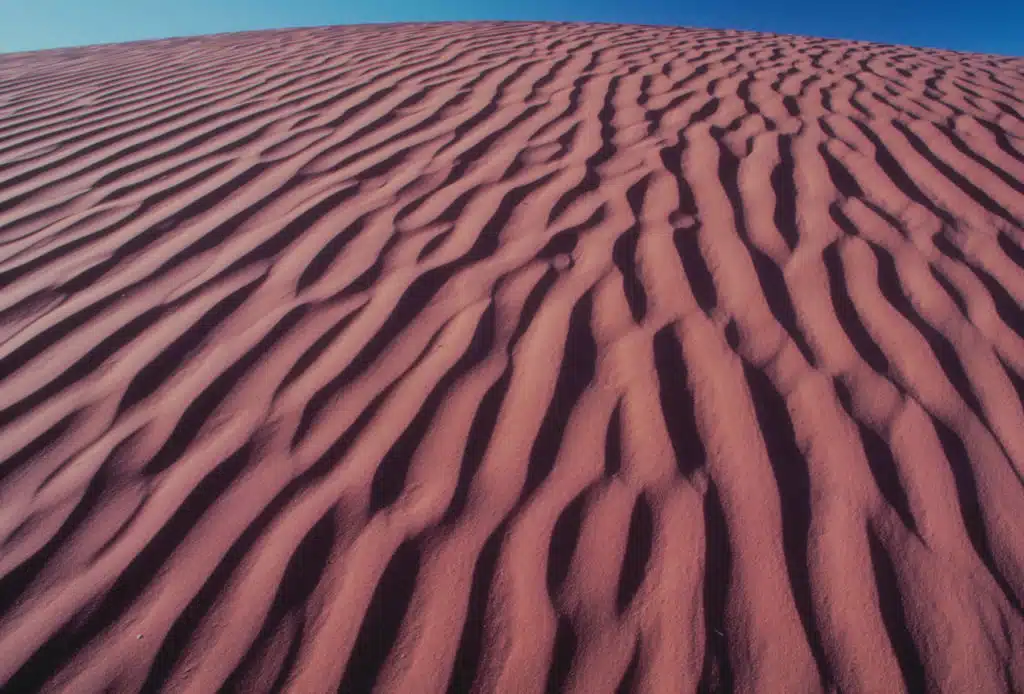
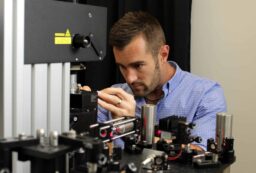

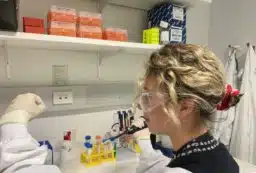
 Fresh Science is on hold for 2022. We will be back in 2023.
Fresh Science is on hold for 2022. We will be back in 2023.